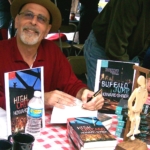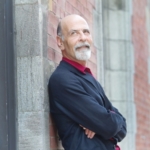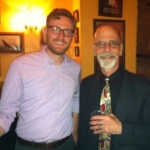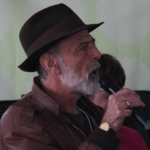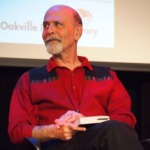Howard Shrier’s second novel, High Chicago, again features the Toronto-based Jewish detective Jonah Geller. It ups the ante from his previous novel in terms of the forces Jonah is confronting, but more significantly in terms of the damage the world ends up inflicting on him.
Whereas Shrier’s award-winning debut novel Buffalo Jump dealt as much with Canadian pharmaceuticals being smuggled into the United States as it did with murder, High Chicago (Vintage Canada) begins with a request to investigate the suicide of a young woman, Maya Cantor. It is a case Jonah soon suspects is actually a homicide.
Maya’s death is followed by two more mysterious deaths, a highly disturbing situation, and one that is tied to a dangerously polluted highrise development that is being erected in Toronto’s Harbourfront area.
All this eventually pits Jonah against Simon Birk, a ruthless Donald Trump- like Chicago real estate mogul whom Jonah is determined to bring down. But he has no evidence implicating Simon in any crime, so he sets off for Chicago in hopes of finding a way to expose the man.
Former hit man Dante Ryan, whom Jonah befriended in Buffalo Jump, also finds his way to the Windy City, as does Jenn Raudsepp, Jonah’s new partner in his recently set up detective agency. Called World Repairs, it is a translation of tikkun olam, the Jewish concept of “repairing the world” and making it a better place.
In Buffalo Jump, Jonah was still somewhat idealistic despite witnessing his girlfriend die in a terrorist attack in Israel, and stubbornly clung to the belief that he could make a difference as a private investigator. In High Chicago, those ideals are completely tarnished as Jonah realizes he can only defeat Simon by operating outside the confines of the law.
In that regard, Shrier has structured this book very differently from Buffalo Jump, which was a cleverly plotted mystery that took a roundabout, unpredictable route to its exciting resolution.
High Chicago, like Simon Birk himself, is blunt and tough, and does not attempt to disguise (most of) its mysteries. That seems like a flaw at first, but Shrier is too good a writer not to be doing this on purpose.
Chicago is after all much bigger than Buffalo, so its challenges would naturally be more overwhelming for Jonah.
High Chicago fascinates because one can feel how overmatched Jonah is and thus wonder how and if he’ll come out of this adventure in one piece. Add to that Shrier’s wry and witty observations on Chicago’s superior waterfront area and architecture, which is immediately apparent to anyone who has ever visited the city, and you end up with a gripping second novel that’s not at all like his first.
The book has its flaws, with a plot that occasionally strains credulity, notably during the climax, and Shrier’s tendency to indicate which streets all the action takes place on gets annoying, but he doesn’t repeat himself or fail to deepen his main character.
On the other hand, Jonah grows in stature and complexity and thus becomes more interesting.
With High Chicago, Shrier cements his reputation as a fine mystery writer. I suspect and hope that he and Jonah will be around for a long time to come. — Shlomo Schwartzberg, Canadian Jewish News


